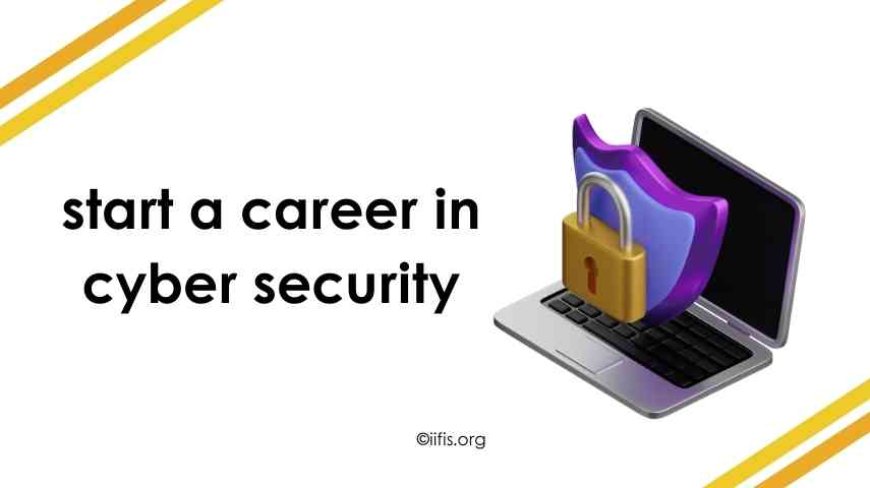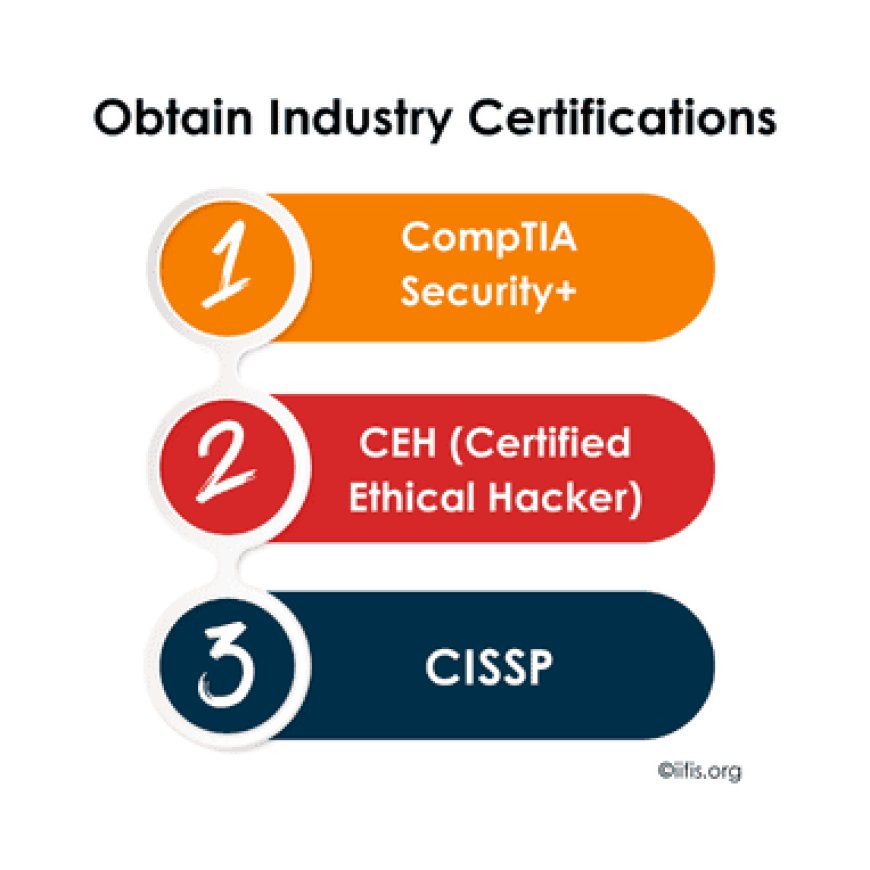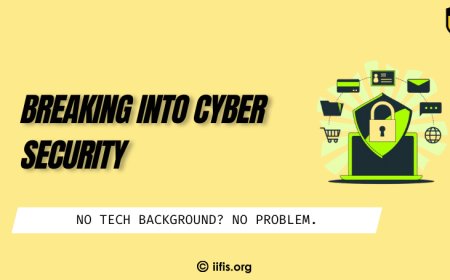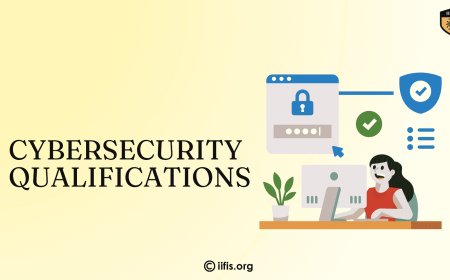how to start a career in cyber security
Learn how to start a career in cybersecurity with essential skills, certifications, and practical experience. Explore networking, hands-on projects, and the best entry-level job opportunities.

Starting a career in cybersecurity is a promising and rewarding path, given the increasing importance of protecting digital assets and data. With cyber threats on the rise, businesses are seeking skilled professionals to protect their systems. The journey to becoming a cybersecurity expert involves gaining relevant knowledge, obtaining certifications, and acquiring hands-on experience. Whether you're transitioning from another field or starting fresh, understanding the essential skills and steps to enter this dynamic field will set you on the path to a successful career in cybersecurity.
What is Cyber Security?
Cyber security involves the protection of computer systems, networks, and data from digital attacks, theft, damage, or unauthorized access. It encompasses a range of practices, technologies, and processes designed to safeguard information and ensure the integrity, confidentiality, and availability of digital assets. Key components of cyber security include:
-
Network Security: Measures to protect networks from breaches and attacks, such as firewalls and intrusion detection systems.
-
Information Security: Safeguarding sensitive data from unauthorized access and ensuring data privacy.
-
Application Security: Ensuring software applications are secure from vulnerabilities and threats.
-
Endpoint Security: Protecting devices such as computers, smartphones, and tablets from security breaches.
-
Cloud Security: Securing cloud-based systems and data from potential threats.
-
Incident Response: Procedures for responding to and mitigating the effects of security breaches or cyber incidents.
-
Identity and Access Management (IAM): Controlling user access to systems and data to prevent unauthorized actions.
Cyber security is critical for protecting personal information, business operations, and national security from the ever-evolving landscape of cyber threats. It requires continuous monitoring, updating, and educating users to effectively manage and mitigate risks.
Understand the Basics of Cybersecurity
Key Concepts:
-
Threat: Potential danger to systems, like malware or phishing.
-
Vulnerability: Weakness in a system that can be exploited.
-
Risk: The potential impact of a threat exploiting a vulnerability.
-
Firewall: A device that controls network traffic to prevent unauthorized access.
-
Encryption: Coding data to protect it from unauthorized access.
-
Intrusion Detection System (IDS): Monitors for suspicious network activity.
-
Authentication: Verifying user or system identity.
-
Access Control: Restricting access based on permissions.
Domains:
-
Network Security: Protects data during transmission using firewalls and secure protocols.
-
Ethical Hacking: Tests system vulnerabilities by simulating attacks to improve security.
-
Threat Analysis: Identifies and assesses potential threats to develop security measures.
-
Information Security: Safeguards data from unauthorized access and breaches.
-
Incident Response: Manages and mitigates damage from security breaches.
-
Cloud Security: Protects data and applications in cloud environments.
Understanding these basics helps in building a strong foundation in cybersecurity.
Acquire Relevant Education and Skills
Recommended Degrees or Courses:
-
Degrees: Consider pursuing a degree in Cybersecurity, Computer Science, Information Technology, or a related field.
-
Courses: Look for specialized courses in cybersecurity fundamentals, network security, ethical hacking, and information security through platforms like IIDMC
Essential Skills:
-
Operating Systems: Understanding of Windows, Linux, and Unix systems, as they are commonly targeted in security breaches.
-
Network Protocols: Knowledge of TCP/IP, HTTP, and other protocols is crucial for understanding and managing network security.
-
Programming: Skills in programming languages such as Python, Java, or C++ can help in developing security tools and scripts, and understanding code vulnerabilities.
Acquiring these educational qualifications and skills provides a strong foundation for a career in cybersecurity.
Obtain Industry Certifications
Overview of Popular Certifications:

-
CompTIA Security+: A fundamental certification covering essential security concepts and practices, ideal for beginners.
-
CEH (Certified Ethical Hacker): Focuses on ethical hacking techniques and tools, teaching how to identify and address vulnerabilities.
-
CISSP (Certified Information Systems Security Professional): An advanced certification that demonstrates extensive knowledge and experience in managing and designing security programs.
How Certifications Enhance Credibility and Job Prospects:
Certifications validate your skills and knowledge in cybersecurity, making you a more attractive candidate to employers. They provide formal recognition of your expertise and commitment to the field, improving your job prospects and career advancement opportunities.
Gain Hands-On Experience
Importance of Practical Experience:
-
Internships: Offer real-world exposure to security practices and tools.
-
Labs: Provide simulated environments to practice and refine skills.
-
Personal Projects: Allow you to apply what you’ve learned and showcase your capabilities.
Participation in Cybersecurity Competitions and Challenges:
Engaging in competitions and challenges helps you test your skills, stay current with industry trends, and build a portfolio of practical experience. These activities also offer networking opportunities and can enhance your problem-solving abilities in real-world scenarios.
Build a Professional Network
Joining Cybersecurity Forums and Attending Conferences:
-
Forums: Participate in cybersecurity forums and online communities to exchange knowledge, seek advice, and discuss industry trends.
-
Conferences: Attend conferences and workshops to learn from experts, discover new technologies, and network with peers.
Benefits of Networking with Industry Professionals:
Networking helps you gain insights from experienced professionals, discover job opportunities, and stay informed about industry developments. It also provides support and mentorship, enhancing your career growth and professional relationships.
Stay Updated with Industry Trends
Keeping Up with Latest Threats and Technologies:
-
Monitor Threats: Regularly review updates on emerging threats and vulnerabilities to stay ahead of potential risks.
-
Learn Technologies: Stay informed about new security technologies and tools to adapt to evolving challenges.
Importance of Continuous Learning and Professional Development:
Continuous learning ensures you remain knowledgeable and adaptable in the rapidly changing field of cybersecurity. Engaging in professional development through courses, certifications, and industry news helps you maintain a competitive edge and advance your career.
Apply for Entry-Level Positions
Tips for Finding and Securing Your First Job in Cybersecurity:
-
Start with Job Boards and Career Sites: Look for entry-level positions on job boards like Indeed, LinkedIn, and specialized cybersecurity career sites.
-
Leverage Internships and Freelance Opportunities: Gain practical experience through internships or freelance projects to build your resume and network.
-
Network Actively: Use your professional network and attend industry events to discover job opportunities and connect with potential employers.
-
Utilize School Resources: Take advantage of career services, job fairs, and alumni networks if you're a recent graduate.
Importance of Tailoring Your Resume and Preparing for Interviews:
-
Tailor Your Resume: Customize your resume to highlight relevant skills, certifications, and experiences that match the job description. Emphasize your hands-on projects and practical knowledge.
-
Prepare for Interviews: Research common interview questions for cybersecurity roles, and practice your responses. Be ready to discuss your practical experience, problem-solving skills, and understanding of current cybersecurity trends.
Tailoring your application materials and preparing thoroughly for interviews will improve your chances of securing your first job in cybersecurity.
To start a career in cybersecurity, focus on acquiring relevant education and skills through degrees or specialized courses. Obtain industry certifications like CompTIA Security+, CEH, and CISSP to enhance your credibility. Gain hands-on experience through internships, personal projects, and cybersecurity competitions. Building a professional network by joining forums and attending conferences is crucial, as is staying updated with the latest industry trends and technologies.
Stay dedicated and proactive in your career journey. Continuous learning and adapting to new developments will keep you ahead in the field. Consider exploring opportunities with organizations like IIFIS (International Institute for Information Security) to further enhance your knowledge and career prospects.























